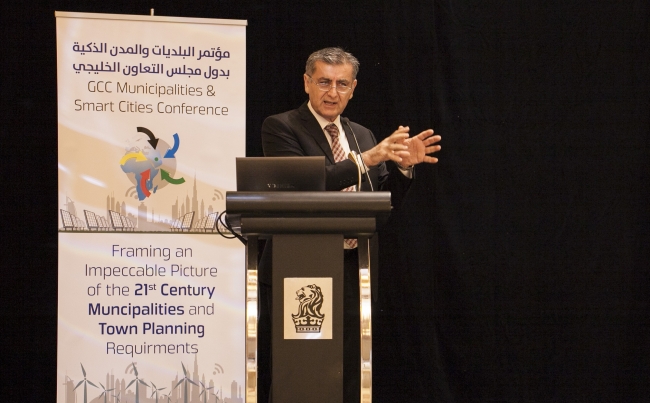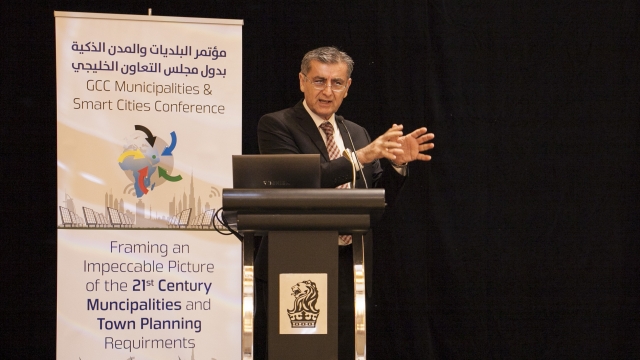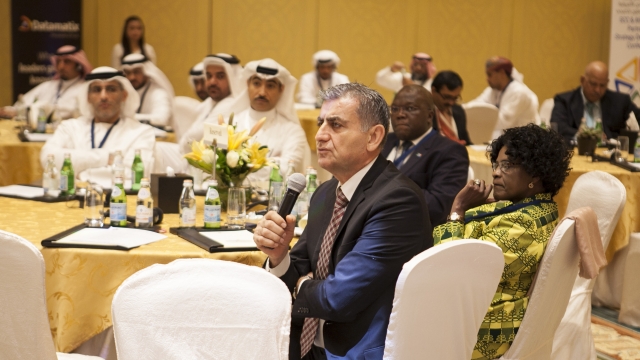October 1st, 2015: Dr. Hoshiar Nooraddin, professor of architecture at Canadian University Dubai (CUD), has revealed that the continual development and dissemination of knowledge is vital to future-proofing livable smart city models.
Speaking at the 5th annual GCC Municipalities and Smart Cities Conference, Dr. Nooraddin talked about the acceleration of learning, technology and infrastructure, and the need for cities to be responsive to these advances in order to maintain optimum livability.
Dr. Nooraddin was among a line-up of speakers at the event that brought together leaders and senior decision makers from government municipalities across the GCC. Among the speakers was His Excellency Mr. Brad Woodside, Mayor of the city of Fredericton, Canada, who spoke about the role of municipalities and the models of governance the can promote smart city initiatives.
The smart cities initiative has become a priority for municipalities across the region in recent years. Under the direction of His Highness Sheikh Mohammed bin Rashid Al Maktoum, Vice-President and Prime Minister of the UAE and Ruler of Dubai, the City has developed a raft of strategic projects to transform the Emirate into one of the world’s most connected and sustainable smart cities.
Dr. Nooraddin also stressed that smart cities should continually measure quality and strengthen their networks to ensure that emerging knowledge is shared across all stakeholders, including businesses, educators, decision-makers and citizens.
Drawing upon the example of Brasilia, a city constructed in the 1950s in Brazil, Dr. Nooraddin demonstrated the vital importance of residents’ involvement in creating a strategic plan for new developments.
He said, “Brasilia was conceived as an ideal city, promising modern architecture and futuristic urban design. However, it was built upon unsustainable principles, without considering the human and community needs. This top-down approach to design meant that it was not responsive to change and ultimately emerged as a visually iconic city, surrounded by run-down settlements.”
Dr. Nooraddin concluded with a number of recommendations for cities engaged in strategic planning for smart city development, including embedding local knowledge, increasing the role of municipalities in the process, raising awareness among citizens and enhancing cooperation among networks across the city.




